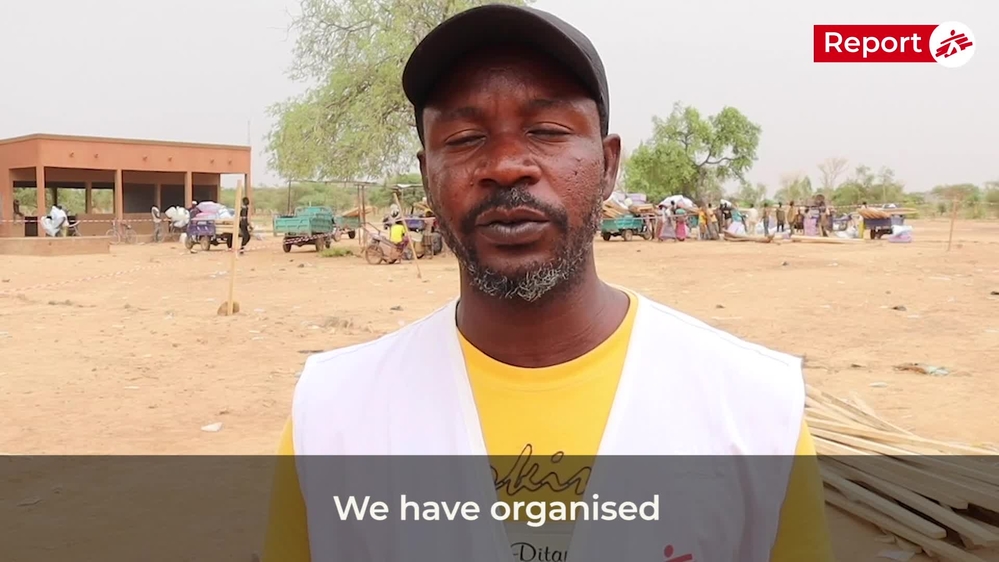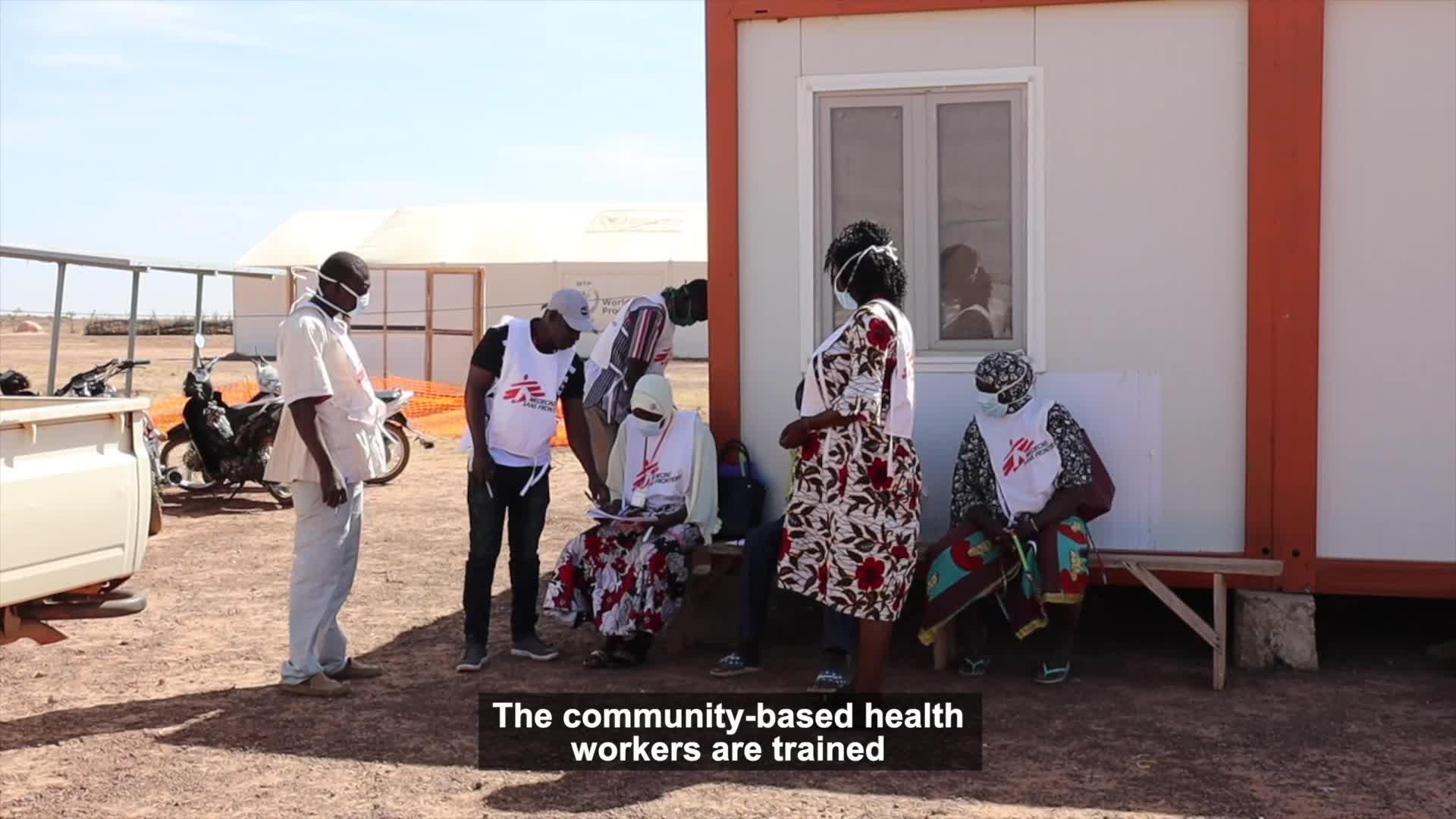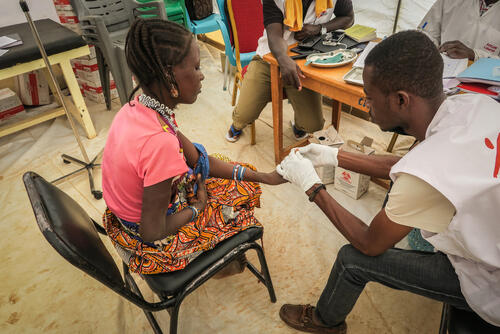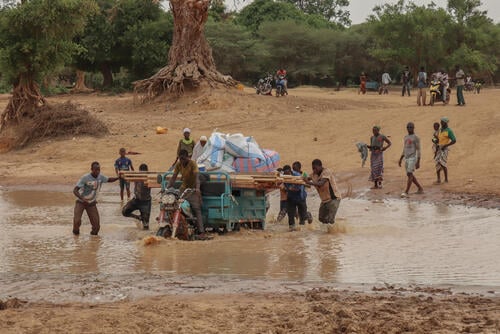Since 2019, Burkina Faso has seen a proliferation of state and non-state armed groups, as the crisis in the Central Sahel, which began in 2012 in Mali, has spread. Violence and insecurity, particularly in the Sahel, East, North and Centre North regions, have forced more than one million people to flee their homes. The country is also facing its worst food crisis in a decade.
Many people struggle to access basic shelter, food, water and medical care. As of May 2021, 76 health centres are closed and 245 are working with reduced services across the country, according to OCHA. In some instances, medical staff have been attacked in areas affected by violence, and many have pre-emptively fled.

Displaced people fleeing violence and the rain in Burkina Faso
Our work in Burkina Faso
In Centre North region, which hosts almost half the country’s displaced people, MSF provides primary and secondary healthcare, support to facilities, vaccinations, community based support, distribution of non-food items (NFIs), water distribution, emergency preparation, and runs mobile clinics in outlying areas.
We provide healthcare to the community in North region’s Titao district and run mobile clinics. Our teams increase access to safe water sources and latrines, and distribute basic necessities to the displaced.
In Sahel region, we provide emergency healthcare to displaced people and host communities in Djibo and in Gorom Gorom and in several locations in the periphery of this town, including primary and secondary healthcare, trauma and wound care, water distribution, and essential distributions. In addition, the teams have worked on installing latrines and digging boreholes to the communities.

Water needs in Barsalogho
In eastern Burkina Faso, we offer nutritional, paediatric and neonatal intensive care for displaced people and host communities at two hospitals in Fada and Matiacoali and eight health centres in different locations. We have trained community health workers to treat common illnesses and to detect and refer patients requiring urgent medical attention. Our teams have also improved access to clean water by repairing and digging boreholes and trucking in thousands of cubic metres of water, as well as distributing hygiene kits and other essential distributions, and performing emergency vaccination campaigns when needed.
In the Boucle de Mouhoun region, we conducted vaccination campaigns in 2020 in Dédougou and Boromo, targeting approximately 110,000 children against measles, and treated almost 50,000 children under five for malnutrition. A new project opened in June 2021 to improve access to secondary healthcare, including surgical activities.
Mental health
Many displaced people in Burkina Faso have been victims of violence, have lost loved ones, or witnessed atrocities. To ease their psychological suffering, our teams started mental health activities in the East region at the end of 2019.
Malaria and malnutrition
Displacements and the disrupted health system have increased the epidemiological across the country where diseases such as malaria and diarrhoea are endemic. Every year during the rainy season, the peak of malaria and malnutrition is one of the main causes of death of children under five in the country.
In North, Sahel, Centre North and East regions, MSF’s activities include increasing the capacities of health facilities, setting up blood banks and operating mobile clinics at camps for displaced people. We train community health workers, raise awareness and carry out malnutrition screening, monitoring and referrals.

Impact of COVID-19
We responded to COVID-19 in 2020 and 2021, and closed our last COVID-19 treatment centre, in Ouagadougou, in June. The threat of COVID-19 still adds a layer of complexity to the already huge challenge of providing healthcare in such an insecure setting. The risk of the virus spreading to areas affected by large-scale displacement exists and the pandemic is negatively impacting our work. We have had to stop and adapt all non-essential medical services in health facilities. Psychosocial support, for example, is now carried out over the phone, and through radio programmes and awareness-raising leaflets.



